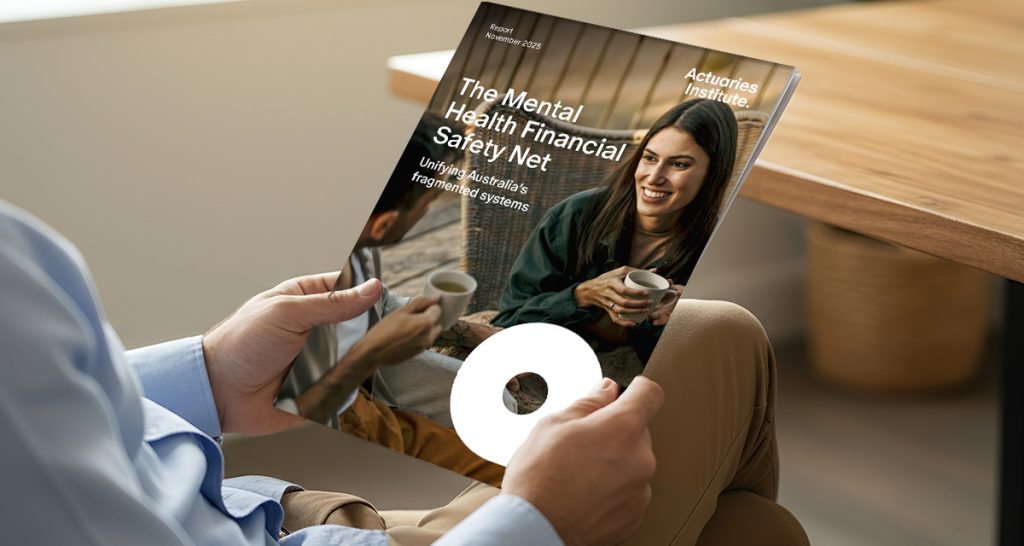Cohesive, equitable and timely mental health support for Australians is being challenged by a complex financial safety net that needs immediate reform, according to a new Actuaries Institute report, The Mental Health Financial Safety Net: Unifying Australia’s Fragmented Systems.
The report explores the affordability and access challenges people face when seeking mental health care. It identifies 22 separate funding supports totalling at least $18.5 billion each year to help Australians afford treatment, care and recovery services.
The 22 separate funding supports include:
- Medicare
- The Pharmaceutical Benefits Scheme
- Workers’ compensation schemes
- Helplines, and
- Private and life insurance.
Despite this scale of support, the report warns that the system’s ability to deliver cohesive, equitable and timely care is being stretched. Rising demand is exposing deep structural weaknesses from inconsistent access and affordability to duplication, regulatory misalignment and unmet need. These weaknesses risk leaving people experiencing mental ill-health to fall through the cracks.
Community Mental Health Australia (CMHA) CEO Kerry Hawkins said the findings reflect what community mental health providers see every day.
“Behind every figure is someone trying to access support while navigating a maze of systems, forms and waitlists. A safety net should catch people, not confuse, exhaust or contribute to their distress,” Kerry said.
Kerry welcomed the report’s focus on unifying Australia’s fragmented funding systems.
“This is an opportunity to rebuild our mental health safety net so it’s cohesive, fair and fit for purpose. That means prevention, early intervention and genuine collaboration across public and private systems. Smart investment in the right places saves both lives and money,” she said.
The report calls for targeted affordability relief for financially vulnerable groups, better coordination between public and private funding, and a stronger national mental health data strategy to guide reform and accountability.
“We want to work with governments, service providers and people with lived experience to stitch this fragmented safety net into one that truly supports Australians experiencing mental ill-health,” Kerry said.


